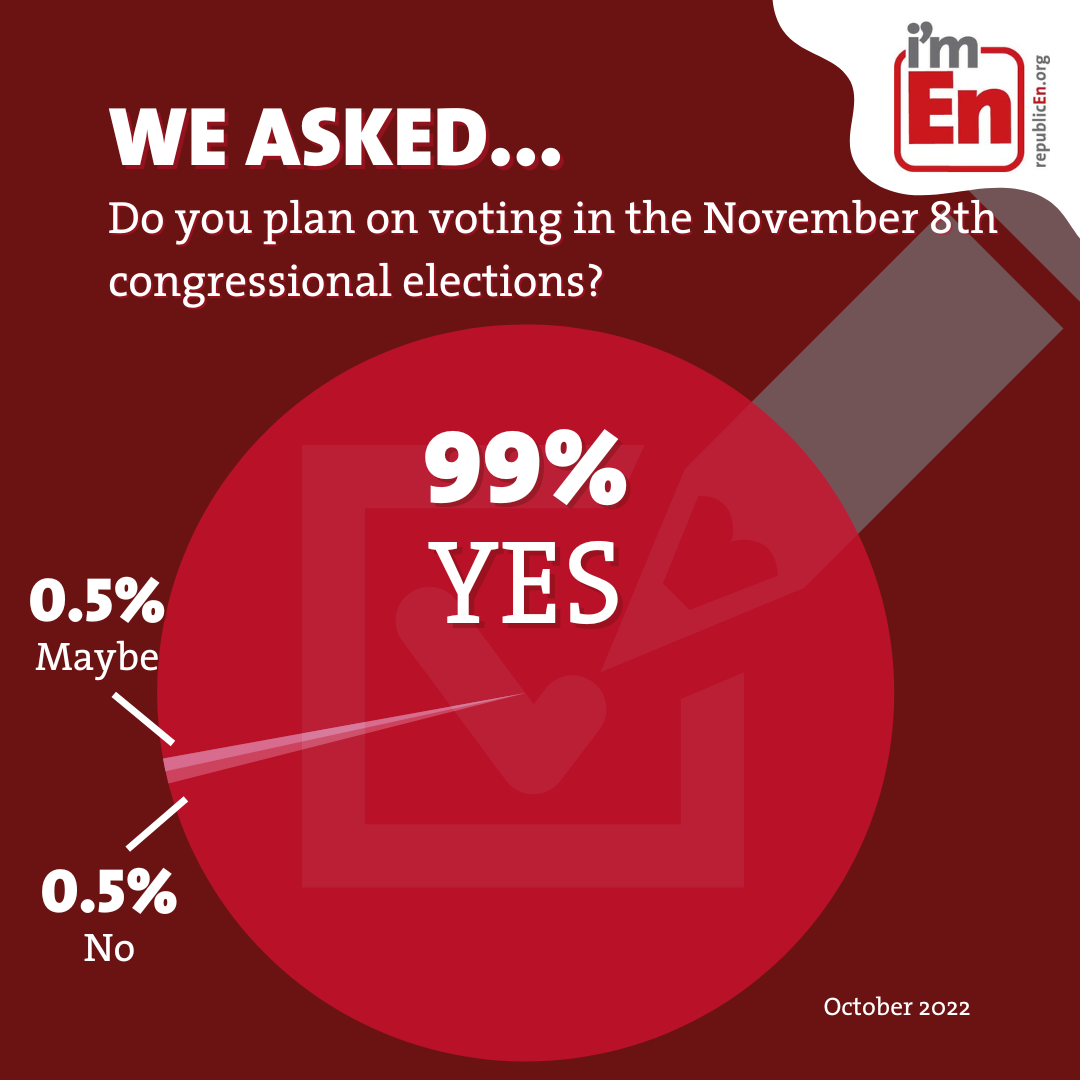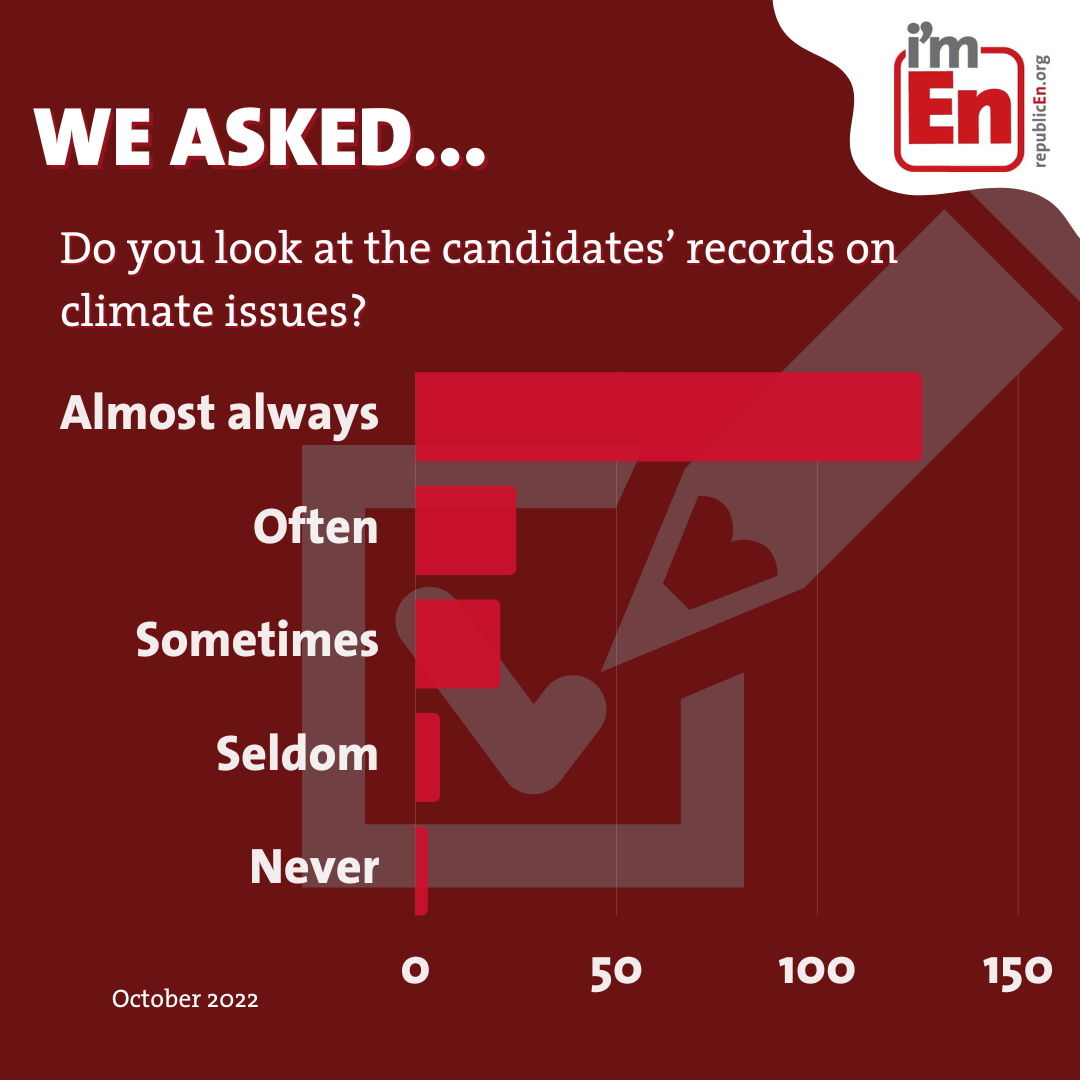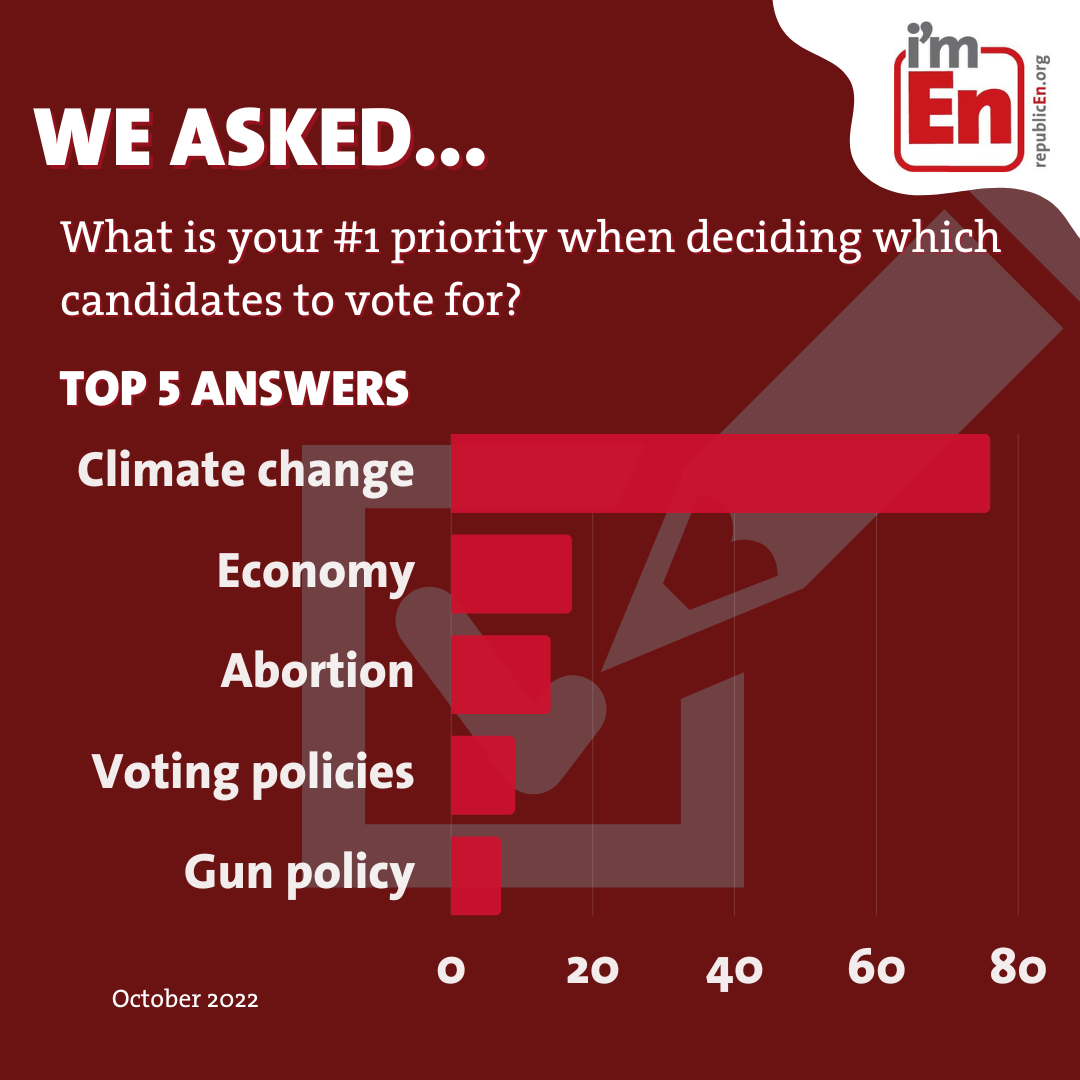Tomorrow, November 8, 2022, marks the Midterm Congressional Elections. 35 Senate seats and all 435 House seats are up for grabs.
We wanted the EcoRight to weigh in! We reached out to learn does the EcoRight plan on voting, and if so, how much does climate change influence that vote?
Here is what we found out:
Meade C. in New Hampshire shares, “Climate change is the biggest and most all encompassing issue. It is the direct or ultimate driver of immigration. And it affects foreign policy (National Security), issues around race and ethnicity, the economy and energy policy, and more.”
Poll answers represent republicEn members across 38 states, plus the U.S. Virgin Islands and District of Columbia. Once again, Texas reigns supreme having submitted the most responses, with California close behind. The political leaning of poll takers: 42% lean Right, 38% claim Center, 18% lean Left, and 2% are unsure or prefer not to say.
Here are more shared thoughts and opinions from our members:
-
-
- “I already voted. Among my priorities, it would really be a tie between (a) economy; and (b) personal accountability.” – Cynthia B. in Virginia
-
-
-
- “Position on climate is rarely a reason here in TX to vote FOR a candidate, but is a significant, almost deciding, factor in voting AGAINST a candidate. With Eagle Ford Shale near and Permian not far, nearly all candidates promote themselves as ‘saving jobs in oil & gas’ and ‘protecting the base of the TX economy, the petroleum industry.’ So, all of them being bad on climate change, my vote is decided on 2nd and 3rd level criteria.” – Bill W. in Texas
-
-
-
- “Climate change is first overarching priority, but I fear our government is doomed unless we reform social media to disconnect the profit from user engagement, which drives people into more and more adversarial roles and has destroyed truth and sense-making. ” – Donald D. in Washington
-
-
-
- “Competence. I voted including for judges who have no position on political issues.” – Penni L. in Illinois
-
-
-
- “Their ability to work with others on all of the issues noted above. My preference is for candidates who realize there is no single answer to any of those issues. ” – Mari G. in Nebraska
-
-
-
- “It is extremely difficult to vote for a Democrat just because of climate change. They make it very difficult for me. Their overall agenda is so out of whack that I cringe when I vote for a Democrat. But the Republicans don’t give me any choice, because they don’t want to address climate change.” – Glenn B. in Georgia
-
-
-
- “I’m enormously pro-life – and you can’t be pro-life without being pro-planet!” – Elizabeth B. in Iowa
-
-
-
- “I won’t vote purely on climate change because the vast majority believe in punitive action against farmers for existing, or wiping our many farms. Find me a pro-farm, pro-holding-corpus and politicians-accountable-for-climate-solutions FIRST and I’ll vote for them. Until then, I side with farmers, who generally cannot afford carbon taxes, and those who CAN are the bad guys!!! Carbon taxes eliminate good ag policy and replace it with megafarms.” – Gretchen S. in Maryland
-
-
-
- “I won’t vote for election deniers.” – Mark W. in Kentucky
-
-
-
- “I look at the overall ‘leanings’ of the candidate in a variety of social and fiscal policy areas (tend to be conservative on fiscal issues, liberal on social issues).” – Jeff V. in Utah
-



